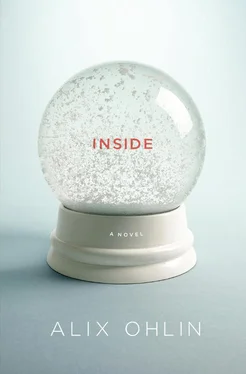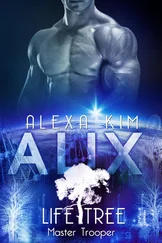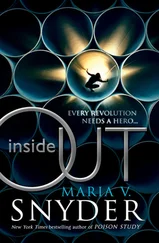He went to therapy, which was what you were supposed to do when something bad happened. Everybody said so. His therapist was a professorial type, bearded, cardigan wearing, with an office full of books. In the first session, Tug told him a little bit about what he’d seen, what brought him here, and they talked about control — what he could have done then, what he could do now. The therapist suggested he keep a journal, or write a book, or a song. He was a big believer in making things.
Tug didn’t mention Yozefu, but a couple of sessions later he told him about the bodies in the river, the wailing of babies. He explained how you treat a corpse infected with cholera, stuffing wadding down its throat and into its anus, then disinfecting it with chlorine and wrapping it in plastic, to keep the disease from spreading, whereas in Kigali the bodies had been left to putrefy in the streets, and only eventually got burned. He didn’t mean to be graphic or shocking. He was simply trying to make a point about the importance of dealing with the dead. But he found that he was drawn to concrete details, and after talking for forty-five minutes without interruption, he felt marginally better. Emptier. Afterward he went down the hall to the washroom and sat in a stall, not thinking about anything at all. He heard the door open and someone came in; from the professorial shoes, he knew it was the therapist. The man hurried into the stall next to him and threw up in the toilet.
Tug canceled the next appointment, wanting to give the therapist a respite from the terrible details; then he decided to cancel the next one too, and after that it was just easier not to go anymore.
Marcie encouraged him to stay home and relax — no one deserved a vacation more than he did, she said — but it made him feel fidgety, restless. She had holiday time coming up herself and wanted to go somewhere, maybe the beach, but he told her he didn’t want to travel. No planes, no highways, no vistas, no sensation of touching down somewhere new. He wanted the opposite of adrenaline, with none of the energy that had so animated his days in the field. He was most comfortable tiring himself out by walking around the city, appreciating the wide-open streets, the uncrowded avenues, the scentless air. Even the most hectic neighborhoods felt blanketed with calm.
The therapist had told him to write down his nightmares when he couldn’t sleep. So one day he was in a stationery store, browsing for a notebook, when the clerk and the manager got into an escalating argument about scheduling and overtime. Suddenly the clerk pushed a pen display off the counter, announced she was quitting, and stormed out. The pens scattered everywhere, rattling like pebbles. Tug spent the next ten minutes helping the manager clean up the mess and listening to her complain about her flighty help, and before he knew it he had a job.
He liked working at the paper store. There was always something that needed to be arranged, inventory to be checked, questions to answer, money to handle, all joyfully inessential tasks. If someone didn’t like their notebook, they could exchange it. It made him laugh to think that anyone would spend three hundred dollars on a pen. He learned more than he thought there was to know about acid-free paper. Eight hours would pass without his noticing, and by the time he walked home that was almost an entire day that he could live with.
Marcie didn’t really understand the stationery-store thing, but she was supportive. That was her nature. She wanted to be there, always offering hugs and solicitude. She tried to pay attention to him when he needed her and not to bother him when he didn’t. In other words, she was trying to do the impossible, and therefore she failed.
Upon his return, Tug took up drinking. It seemed like the best way to get through the hours between leaving the store and going to bed; otherwise, there was just too much time. Marcie stopped inviting friends over, for fear he would pass out at the table or throw up in the sink. Once, he took her sister’s hand, raised it to his mouth, and licked her fingers, an act for which he later had no explanation. In fact, he could hardly remember it happening. When they talked about the things he did while drinking, it seemed to him that they were discussing someone else entirely; he shared Marcie’s concern and disgust, and he shook his head right along with her, wishing that this man, this other Tug, would shape up and get his act together.
As things got worse, he stopped talking to Marcie without noticing that he had. Indeed he rarely thought about her at all, even when she was in the same room. Late one night, he was watching hockey and drinking Canadian Club when she came downstairs to ask him to lower the volume. He didn’t ignore her on purpose; he just didn’t register her presence until she picked up the remote and turned off the television.
“I need to sleep,” she said, her voice trembling. “I have a huge meeting at eight. Can you please just turn it down?”
He kept looking at the television, wondering where the picture had gone. So Marcie positioned herself in front of him, still talking to him, bending over with her face close to his. She was in his line of sight, and he tried to nudge her aside, but he wasn’t very gentle and she fell over the coffee table, landing hard on the floor, rubbing her elbow and crying.
“I know you’re an asshole right now because of Africa,” she said. “But you’re also just being an asshole. Don’t you get it?”
He did. He knew this darkness inside him wasn’t Africa’s doing. It had always been there inside his deepest self, and all his time abroad had done was to wear off the veneer, revealing the truth at his core. Or maybe it had given him permission to acknowledge that most of life just didn’t matter.
Months passed, more of the same. In the winter he took to walking for hours after he got off work, letting the cold air pinch his nose and ears. He spent as little time as possible at home, hoping this might make things better for Marcie. He was standing in the park one evening watching some boys play hockey, the rink a pool of light in the darkness, their skates clashing and whistling in rhythm, when Yozefu came to him unbidden, unwanted. He saw the boy not as he’d been in the days before his death but as he’d looked when Tug first met him.
He saw him laughing as he kicked the banana-leaf puck around the dusty courtyard, yelling, “He shoots, he scores!”
He started to cry, pulling his hair with both hands. Sobbing, choking on his snot, he curled into a ball next to the rink and tried to huddle there for warmth. Probably he would have spent the night there, but one of the hockey fathers came up to him and said he had to leave, that he was scaring the children.
This was the end of one part of his life. Afterward, he was calmer. He stopped drinking so much. He went to work, came home, was well behaved.
But he still wasn’t sleeping, and he spent his nights on the couch, hollow-eyed, watching TV with headphones on, so as not to keep Marcie up. They went out to dinner with friends and he would sit quietly at the table, a pleasant smile on his face, rarely saying anything at all. He was like a well-trained dog, patiently attending his master, observing human behavior that had nothing to do with him. Many of these people complimented him on how well he was doing, and he couldn’t tell if this was sarcastic, encouraging, or ripe with condescension, like telling a child how good he is at checkers. After a while he understood all they meant was that compared to the alcoholic rages, the quiet calm looked more like normalcy, and perhaps this was enough. So he tried to adopt the contours of a regular life, molding himself to it as if his personality were made of clay.
Читать дальше












